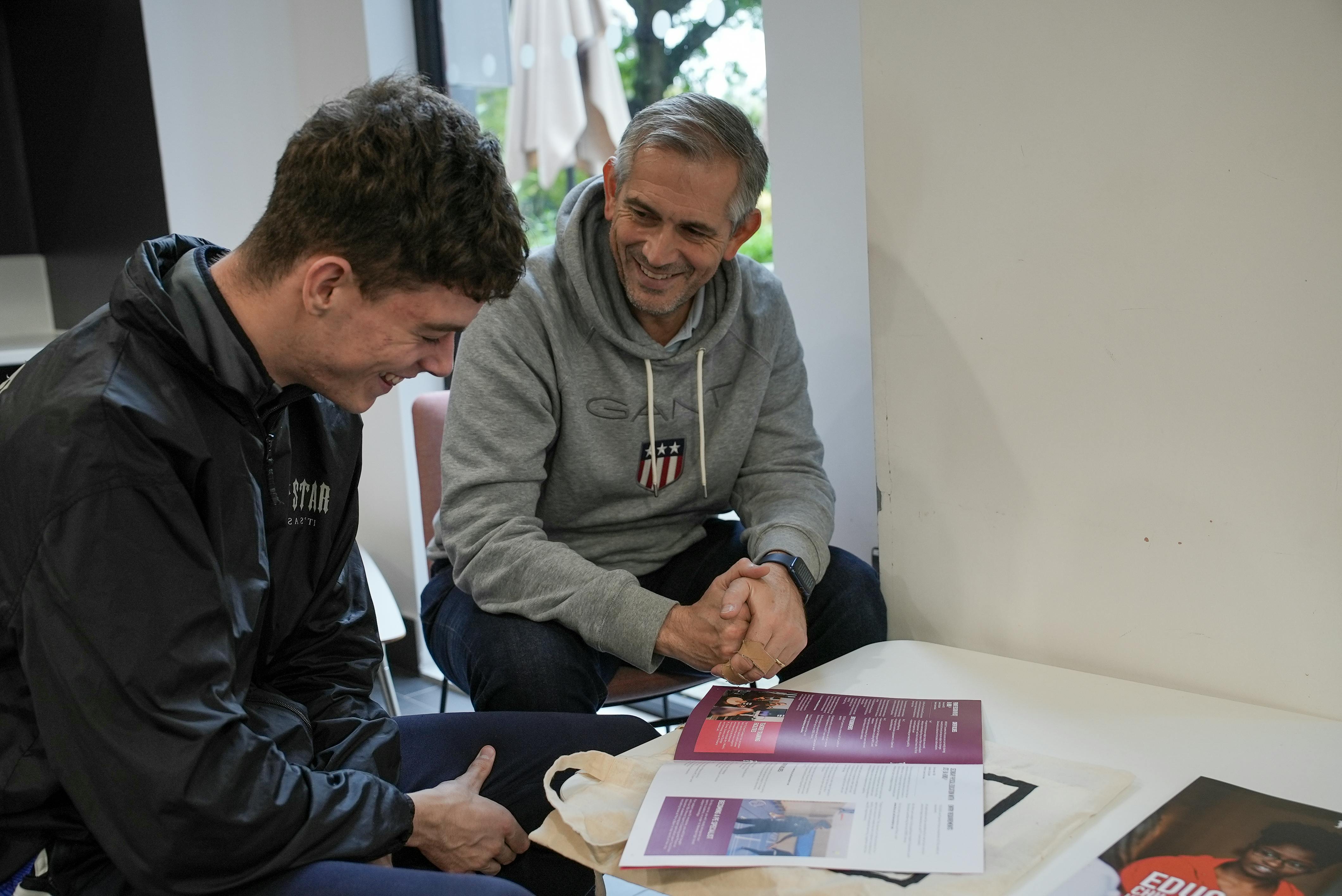Wondering how to help your child with their personal statement, and looking for more information on what should be included? Our overview is a great place to start.

What is a personal statement?
A personal statement is a longer piece of writing that forms part of a student's application to university. It describes the student, and their interests - both academic and extra-curricular - and explains why they want to study the subject they have applied for, what sets them apart and what their plans are for the future.
Why is a personal statement important?
A personal statement is important because it shows the Admissions staff and the tutor for the student's course whether the student in question is the right fit for the subject, has a passion and genuine interest in it, and that their skills match those required for the course. It's also the one opportunity to show a little personality in the application process!
Personal statement guide
Find out all you need to know to help your child put together a winning personal statement.
What should be included in a personal statement?
there are two main things to include in a personal statement: an overview of academic achievements and ambitions, as well as any extra-curricular activities that show the student to be more well-rounded, or even showing interest in their course area in their spare time (this is especially true for subjects not available at A Level, like Nursing, Teaching, etc - work experience in these areas is highly important to seek and include in a personal statement). Some more tips here on the most important things to include:
1. Course choice
Admissions tutors want to see that students are enthusiastic and passionate about their chosen subject and that they have the right skills and experience to succeed on the course. Your child should discuss why they have chosen to apply for the course concerned; what motivated them to take this course at a university level? They should mention how their interest developed, what they have done to pursue it or how they’ve drawn inspiration from their current studies.
2. School and college life
Students should include details of what they studied at school or college, as well as any extra-curricular activities, or positions of responsibility (for example prefect, student ambassador), that highlight the necessary skills needed for their chosen course. It’s vital that they provide examples to support their claims and relate everything back to their course or university life in general.
3. Experience
It could be work experience, volunteering, or a university masterclass/taster session; relevant experience is an essential requirement for many courses and helps students to demonstrate their enthusiasm and commitment in wanting to study the course. They should reflect on their experiences, explaining what they've learned from them or how they’ve helped develop their interest in the subject.
4. Your future plans
Students should think about what they want to do in the future – whether they have a specific job in mind or just a general idea of the type of field they want to work in. If they're not sure yet, they can just talk about what they're looking forward to at university and what they want to gain from their course or from university life.
How long should a personal statement be?
The personal statement should be one to two pages long. There is a maximum of 47 lines or 4,000 characters to work with so it's important to use short, concise sentences and delete any unnecessary words.
When should my child be working on their personal statement?
The UCAS deadline is in late January each year, so it’s good for your child to get started on theirs before Christmas so they can enjoy the holidays.
You can still apply through UCAS after the January deadline; however, some of our courses may be full.
How can I help my child write their personal statement?
Ultimately, your child will need to write their personal statement from a very personal viewpoint, but you can help get them started by working out the structure of their personal statement, and then discussing what examples could go into each section. If they then focus on doing just one section a day, it'll be over before they know it! Also, make sure you offer your editing services once they've finished, as the UCAS website doesn't have a spellchecker on this section, and any errors will not be looked on too kindly by the course tutors!
